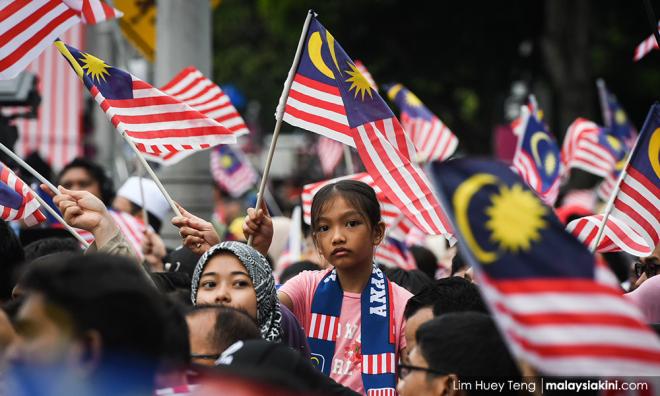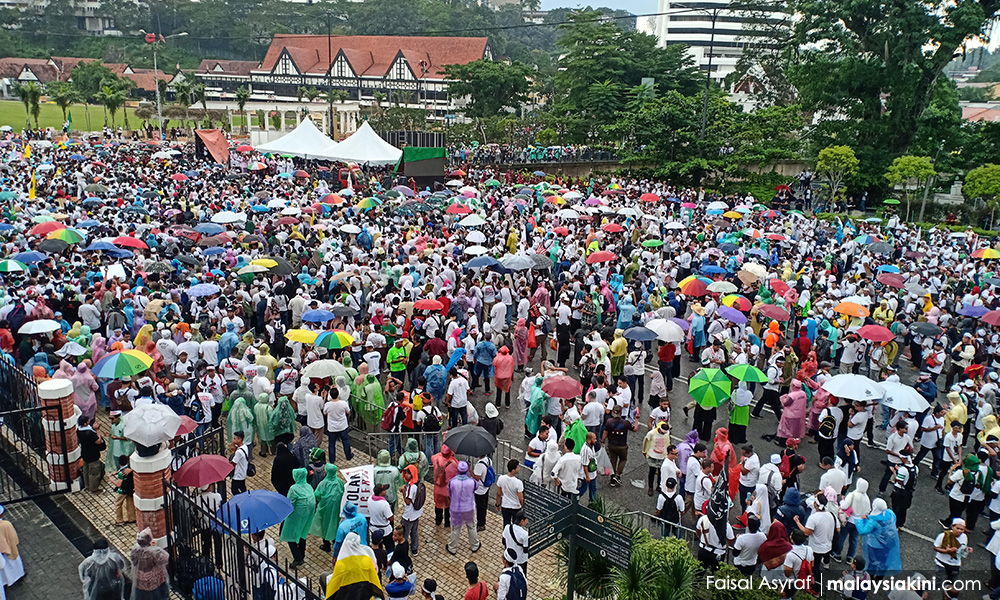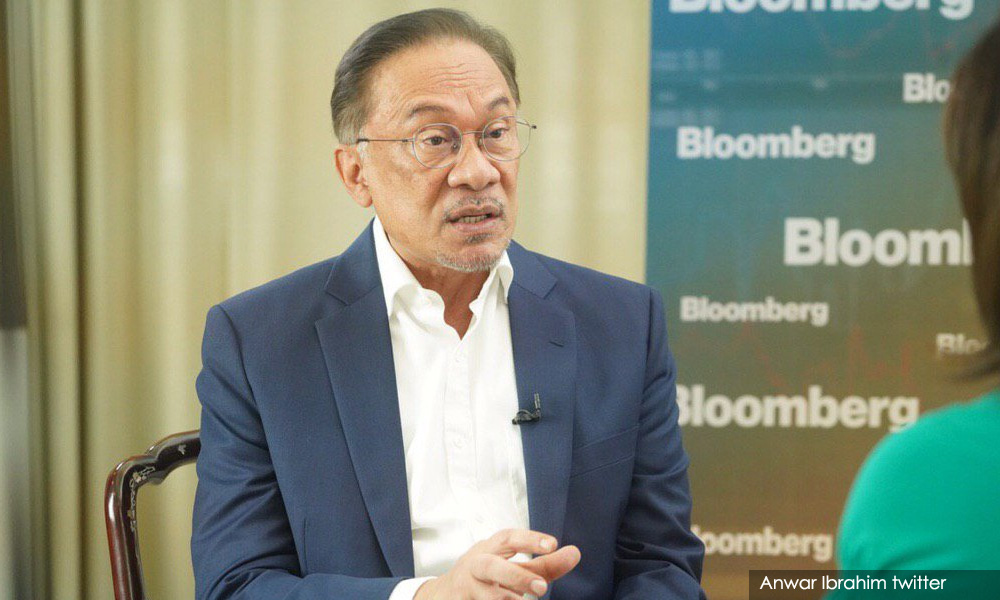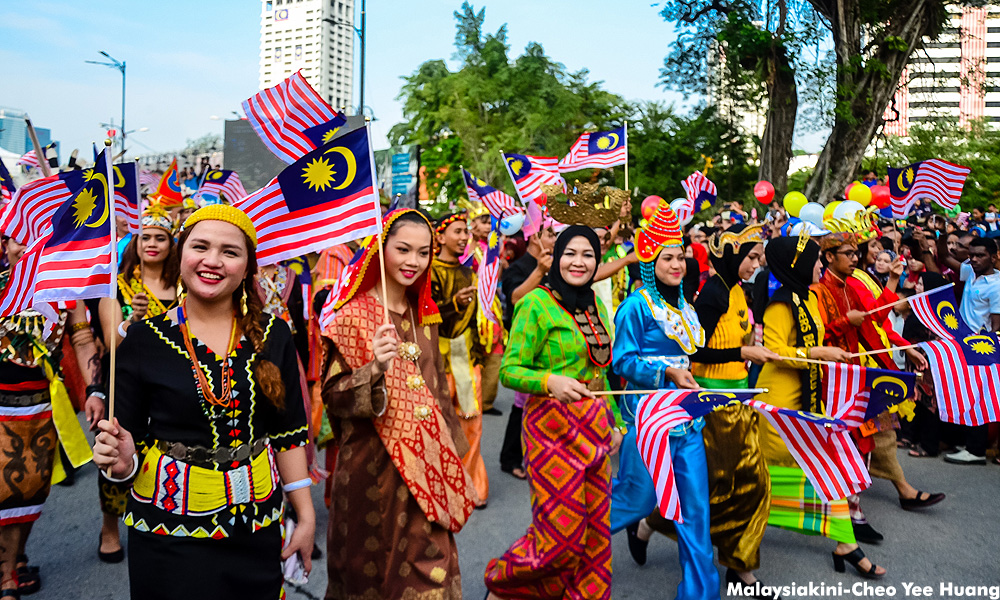
MP SPEAKS | The Shared Prosperity Vision 2030 (SPV 2030) rings hollow in the wake of the Malay Dignity Congress. Shared Prosperity without a shared society is meaningless.
The speeches in the congress, particularly by Professor Zainal Kling and the five demands presented to Prime Minister Dr Mahathir Mohamad, has brought home the challenges of unity in our multi-ethnic society.
Recent events show that exclusionary ethnic-nationalism has returned with a vengeance. This time the rhetoric is more inflammatory and intolerant.
It is depressing that "New Malaysia" is on the same old road of racial divisiveness.
Unless action is taken to address exclusionary ethnic-nationalism, SPV 2030 will just be another empty slogan like “Unity in Diversity”. After 56 years, unity has never been achieved. This is because “Ketuanan Melayu” (Malay supremacy) actually holds sway.
While political/economic elites - the real beneficiaries of race preferential policies - became billionaires, ethnic minorities and indigenous groups have been marginalised or left behind.
As intra-Malay inequality widened, ethnic-nationalism consoled people to take pride in their ethnicity: “I am still poor, but at least I take pride that a member of my race has become a billionaire.”
These racial policies have led to political patronage, rent-seeking activities and corruption. They are seen as top-down exclusionary and discriminating practices reinforcing a narrative that ethnic minorities are “less than equal” citizens. They are fueling a derogatory perception of colonial stereotypes of ethnic minorities.
The new government and opposition are both pandering and promulgating the same old vision of race and traditions of “blood and soil”. Both apply the same “threat-cohesion” strategy.
Threats to group status are generally thought to unite threatened in-groups and strengthen cohesion among group members. The trade-off is the dehumanisation and demonisation of the “other.”

Following Umno-PAS led protests, the cabinet reversed its decision to ratify Icerd and withdrew Malaysia from the Rome Statute. There is now a call to boycott halal products manufactured by non-Muslims.
Mahathir had invited all Malay parties, including Umno and PAS, to join Bersatu for the sake of Malay unity. Umno deputy president Mohd Hassan has reciprocated by offering Mahathir and Bersatu to team up with Umno-PAS. A delegation of representatives from Umno, PAS and Gabungan Parti Sarawak (GPS) pledged support for Mahathir to continue as prime minister for a full term. This is not in keeping with the transition bargain.
Mahathir has turned down the offer but it is cold comfort because even Caesar who thrice refused the crown before finally accepting it.
The prospect of an all Malay parties’ coalition is chilling, not because of Malay unity but that a more virulent form of exclusionary ethnic-nationalism will emerge.
The repeated reminders that Malay dominance is under threat, the position of Article 153 affected and access to economic and social resources will be diminished have increased racism, hatred, bigotry and xenophobia.
The inherent divisiveness of ethnic-nationalism will become more toxic, oppressive and chauvinistic. They will undermine social inclusion and social cohesion.
What can be done?
Leaders, civil society organisations and all people have to play their part towards building understanding and tolerance.
The Pakatan Harapan leadership must have the courage to act.
Arguments of “stable-tension” are illusory. Consociationalism was replaced by Umno’s dominance long ago. The oppressed are quiet only because of repressive laws and the application of legal violence. These do not generate legitimacy, only resentment, which will boil over someday. Ethnic-based tensions will lead to hatred, conflict and violence.
The origins of Ethnic-nationalism in national-awakening struggles for independence or self-determination is always heroic. When it is unable to transform to civic-nationalism after attaining independence, the final result for a multi-ethnic society is often cruelty.
This is because the objective of ethnic-nationalism is for the nation-state to be home to only one homogeneous ethnic group. History is littered with minorities of multi-ethnic societies suffering forced deportations, expulsions, pogroms, ethnic cleansing and genocide.
Long before that, brain drain and capital flight will take its toll on the country. These costs of race preferential policies are reported in the April 2011 "World Bank Economic Monitor".

Anwar Ibrahim (photo) is pinned by the transition bargain. He can only engage in strategic patience. He cannot openly disagree with the prime minister less he is accused of being impatient and rocking the boat. He will have to find the means to prevail upon the prime minister that exclusionary ethnic-nationalism is a dead-end which will wreck the country.
Leaders must instil in all Malaysians that there is no place for explicit discriminatory appeals nor inciting racial hatred. There must be no tolerance for the intolerant. Leaders must have the resolve to fight bigotry and defend the basic universal principles of human decency taught by all religions.
The talk of Malays losing their rights are nothing more than fearmongering and must be stopped. Our leaders must reassure Malays their rights are not eroded by fully including others. They must convince them that prosperity is not a zero-sum game. The differences each ethnic group brings to the table will be for the betterment of all.
Budget 2020 has put substance to Harapan’s promises and exposed the opposition’s misrepresentations through RM445 million in grants to support bumiputera entrepreneurial development; RM4.4 billion to the Ministry of Agriculture with a focus towards enhancing farmers’ income; RM152 million increase for fishermen’s allowances; RM810 million for welfare of the Felda community; RM738 million to Risda and Felcra smallholders; RM10.9 billion for rural development; RM8 billion to assist bumiputera institutions and entrepreneurs; RM1.3billion for Islamic affairs.
The government must now capture the narrative.
Cabinet ministers are constrained by the parliamentary convention of collective ministerial responsibility. They must publicly support all government decisions even if they privately do not agree with them. They have to speak up at cabinet meetings against the ongoing expressions of “Malayness.” So long as nationalism is associated with one particular ethnic or religious group, it will serve to exclude and disadvantage others. This is bad nationalism.
The only way to keep the destructive potential of nationalism in check is to fight for a society in which collective identity transcends ethnic and religious boundaries - one in which citizens from all ethnic and religious backgrounds are treated with the same respect as citizens from the majority group.
Inclusive nationalism, shared values and a shared national identity must be encouraged. Francis Fukuyama calls it a creedal national identity. It is to define larger and more integrative national identities that take into account society’s diversity.

What can people do?
We have to work together to build social cohesion. We must learn to share our society. There is no other option.
Non-Malays must learn that respect and dignity is a two-way street. Those who insult the race and religion of another deserve to be dealt with severely.
They must understand, just as they demand respect and dignity for their own identities, so they must respect and honour the dignity of others. We are not racists but we rush to the defence of our respective in-groups when they are threatened. When no such threat is perceived we are usually not intolerant. On the same basis, we must not label others as racists by their defensive reaction to the reminders from political entrepreneurs that Malays/Muslims are under threat.
Fear of losing dominance and defensive reactions are pushing Malays/Muslims into the arms of Umno-PAS. Talking and applauding differences serve to confirm the threats and cause many to rally around Umno-PAS. We can best limit intolerance by talking and applauding not our differences but our common and unifying beliefs, practices, rituals, institutions and processes. Let’s all reach out our hands to touch the hearts and souls of our fellow Malaysians.
Visions of a 'Shared Malaysia'
Each of us has a responsibility for building a shared society. One way is to pass on the vision of a Shared Malaysia.
A "Shared Malaysia" is where all people are equally capable of participating and reaping the benefits of economic, political and social opportunities on an equitable basis as a result of their performance and efforts.
A "Shared Malaysia" is a society where citizens regardless of race, ethnicity, religion and language have a sense of belonging. They are empowered to participate without necessarily conforming to a dominant culture and consequently, relations are peaceful.
Central to the vision of a "Shared Malaysia" is a social equilibrium where all members while expressing their own identities and aspirations, accepts the dignity and rights of others with different identities.
A "Shared Malaysia" has a stable policy environment and legal system where the potential earning power and innovation of all groups are included to bolster a more equitable and sustainable economic growth for all citizens leading to meaningful and flourishing lives.
The foundation for "Shared Prosperity" is a "Shared Malaysia". The glue that holds a society together is social cohesion. It is the product of inclusiveness. Social fragmentation and exclusion are too costly and never an option.
Ultimately, ethnic-nationalism is about politics. Good politics is where leaders and governments produce real solutions to real problems and not producing imagined problems with no solutions.
WILLIAM LEONG JEE KEEN is MP for Selayang. - Mkini


No comments:
Post a Comment
Note: Only a member of this blog may post a comment.